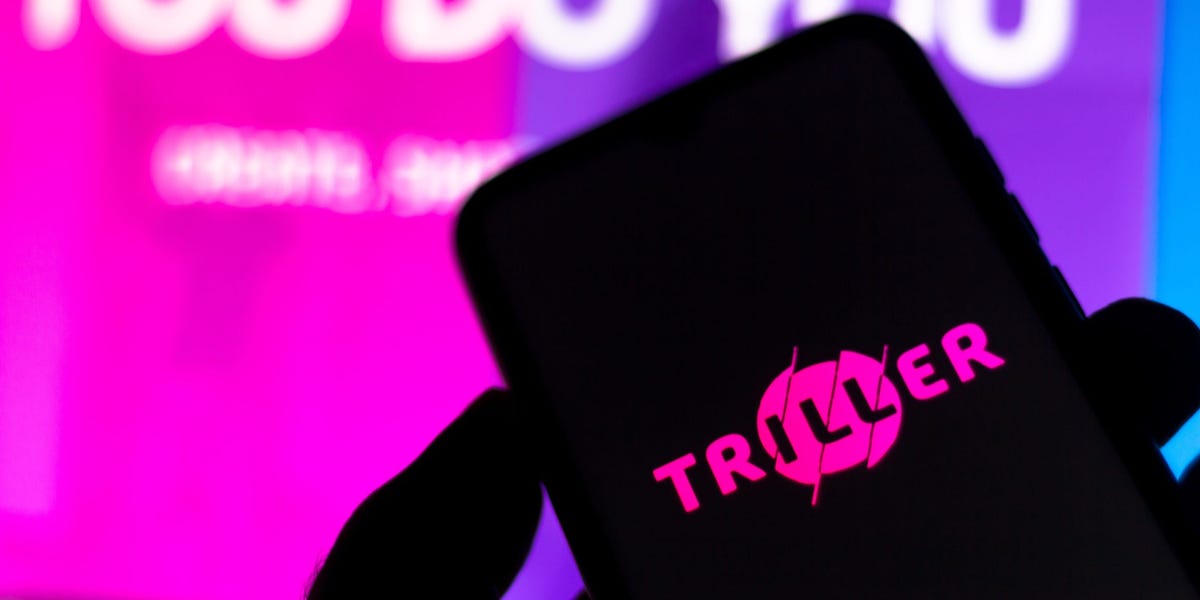- Triller said it won’t try to generate revenue directly in the short-video app it was named after.
- The company has regularly positioned its app as an alternative to TikTok over the years.
- It revealed the business “refocus” in an S-1 filing as it pursues a public listing.
Tech company Triller has decided it won’t try to make money directly from the TikTok-like video app it was named after, per an S-1 document the company filed earlier this month as part of its plan to go public on the New York Stock Exchange.
In the risk factors listed in its preliminary prospectus, Triller wrote that “as a part of a reorganization and refocus of Triller’s business in 2022, it was determined that the Triller App would not be a revenue generating business model.”
The company still plans to indirectly monetize the Triller app since content posted on Triller and shared elsewhere as part of its “open garden” model could lead to revenue generated through its other businesses, such as its influencer-marketing platform Julius.
“The app itself serves as a conduit to our AI technology, which is integrated into almost every social media network, not as a ‘endpoint’ for anything including monetization,” Triller spokesperson Michael Green told Insider in an email. “Comparing the Triller app’s lack of revenue generation to traditional business models would be like asking about the miles-per-gallon of an electric car — it’s not an applicable metric for understanding our business.”
But the company’s declaration that Triller, a video app functionally similar to TikTok or YouTube shorts, won’t generate revenue on its own, highlights a fundamental difference between its business model and other social-media platforms it’s compared the app to. Triller has regularly oriented its app as an alternative to TikTok over the years, particularly at moments when politicians and regulators have raised concerns that TikTok’s Beijing-based owner presents a national security risk.
“With the looming ban on TikTok, Triller is quickly taking pole position as the hottest short form music app,” the company wrote in an October 2020 release, shortly after the Trump administration announced plans to block TikTok from app stores. After Trump’s TikTok ban fell through and other US officials continued to scrutinize the app, Triller CEO Mahi de Silva used a July 2022 blog post to advocate for a TikTok ban.
“The company isn’t shying away from the fact that we certainly were saying, ‘Hey, we’re a great alternative to TikTok,'” Green said. “Had the TikTok ban occurred, I’m sure Triller would’ve quickly pivoted.”
While TikTok and other social-entertainment companies make money mainly from the ads that run in their platforms, the Triller app’s centrality to its parent company’s identity has diminished over the years as it’s added other businesses to its holdings through a slew of acquisitions and product launches. It’s broken into boxing, rap battles, SMS marketing, and other categories.
The company does not perceive the Triller app as core to how it makes money, Green told Insider. Triller will therefore book costs tied to the Triller app as sales, marketing, general, or administrative expenses rather than as a cost of revenue, it wrote in its securities filing. These costs could include paying talent and influencers to drive adoption of the Triller app, or paying to license music for the app as a brand-building tool, it wrote.
Triller now primarily generates revenue through other business lines like its combat-sports streaming platform, FITE, influencer-marketing platform, Julius, and its creator-fan engagement tool, Fangage. In 2022, Triller said it grew overall revenue by roughly 80% year over year to $47.7 million. It provided in its securities filing snapshots of how much historical pro forma revenue some individual businesses have brought in during set time periods. Julius, for example, garnered around $4.4 million in revenue between January 1, 2022 and October 31, 2022. FITE drove roughly $22 million in revenue between January 1, 2021 and July 29, 2021.
Overall, Triller’s net loss landed at around $196 million last year, a significant drop from 2021 when the company went on a buying spree and racked up a more than $700 million loss.
The Triller app, which displays a stream of short videos featuring music artists and other content creators, has historically represented a small portion of the company’s overall revenue. Triller’s business-to-consumer unit, which included the app, was less than 3% of the company’s 2021 revenue, per 2022 SEC filings compiled as part of a now-shuttered plan to complete a reverse merger with video-tech platform Seachange International. Triller ended its reverse merger plan in June 2022 and switched to a direct listing.
Triller has also cut back on costs associated with the Triller app in the past year. It removed music from major rights holders within Triller in late 2022, a move that came around the time that music partners like Sony Music Entertainment and Universal Music Group sued the company for alleged nonpayment of bills. Triller wrote in its S-1 that it had saved $7.7 million in Q1 2023 after reducing its music licensing costs.
Read the full article here





